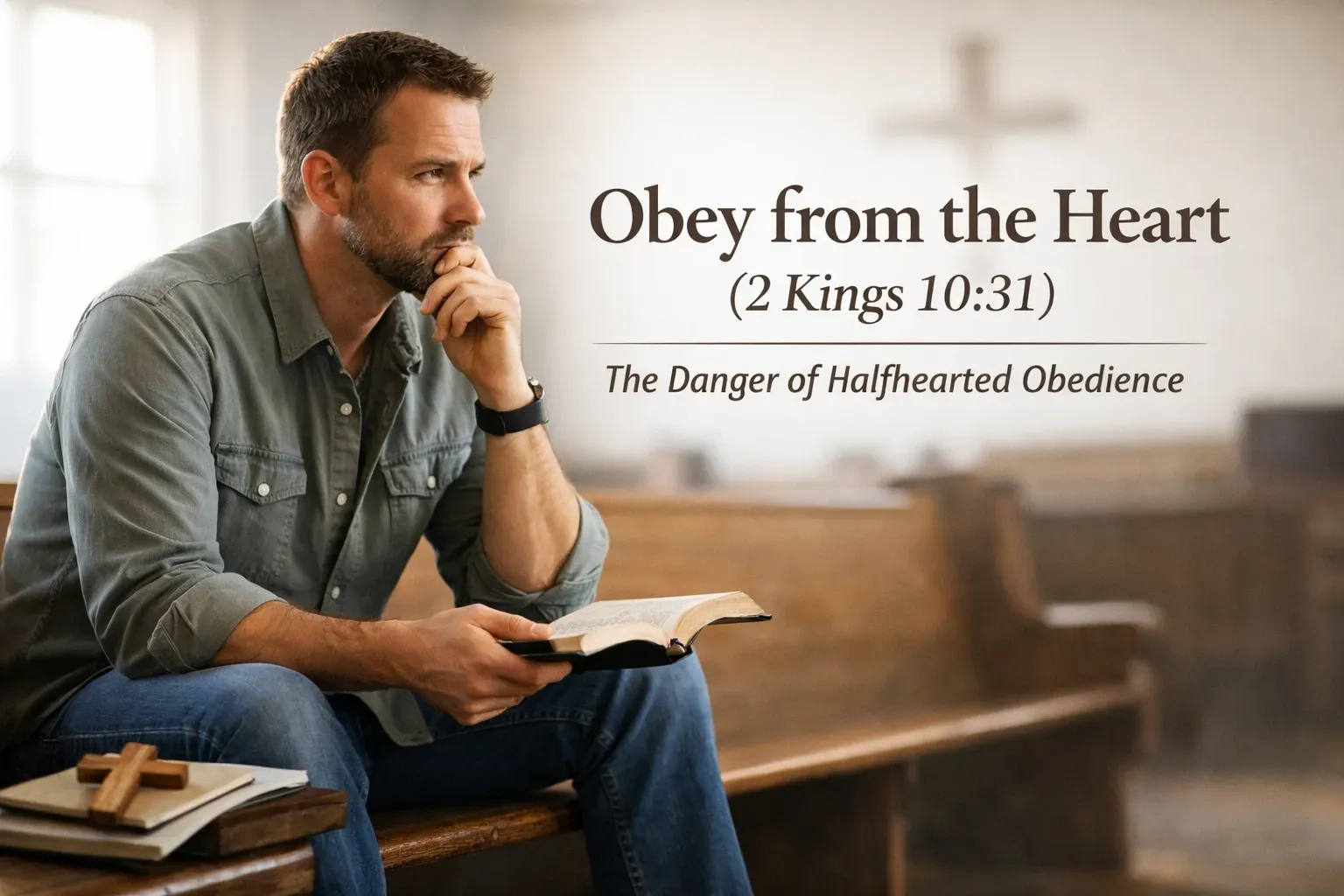Man’s propensity to evil and rebellion against God is just as much there after salvation as it is before salvation
Today's Gleanings from Medellin, Colombia

“Whoso stoppeth his ears at the cry of the poor, he also shall cry himself but shall not be heard” (Prov. 21:13). If, therefore, I desire mercies of the Lord for myself, let me see to it that I show mercy to others; otherwise my own heart will condemn me, and I cannot pray in the Holy Spirit. “Blessed are the merciful, for they shall obtain mercy.” Harshness of spirit, indifference to the need of others—whether spiritual or temporal—will effectually hinder my prayer getting through to the ear of God.
The principle is of wide application. Whatever condemns me in my own conscience hinders prayer.
H. A. Ironside,
Praying in the Holy Spirit (New York: Loizeaux, 1946), 16–17.
*****************************
Have you ever prayed against the chisel as God chipped away at your greed, your selfishness, or your sin? Have you ever complained that God didn’t answer your prayers for comfort as He heightened the flame that would make you as pure as gold? Have you ever prayed against the grindstone as God sharpened you for duty and service in His kingdom? Aren’t you glad that the Divine Artist didn’t answer your prayers in these instances but continued to sculpt your life into His beautiful creation? We want everything that we pray for every time, but sometimes we would be better served to seek God’s will in the matter.
Elmer L. Towns, How to Pray: When You Don’t Know What to Say (Ventura, CA: Regal; Gospel Light, 2006), 89.
We are to relate to the world by being different, not similar, in our lifestyles and our beliefs. Those of the world believe in themselves; we believe in Jesus Christ. Their goals are earthly; our goals are heavenly. Their trust is in their physical strength and beauty; our trust is in God and the Holy Spirit. They seek selfish fame and fortune; we seek selfless proclamation of Christ.
Unfortunately, many brands of Christianity today are simply worldly counterfeits.
Robert Dean Jr. and Thomas Ice,
What the Bible Teaches about Spiritual Warfare (Grand Rapids, MI: Kregel Publications, 2000), 79.
*****************************
we described the origin and nature of the first two enemies the Christian faces: Satan and the world. Yet, these two are external enemies; neither has the power to force any person to disobey God. What gives these first two enemies an opportunity to operate in the believer’s life is that this internal enemy provides a foothold of influence within each of us. Satan (and demons) can tempt the Christian, and the world system supplies philosophies and ideas that offer a rationale for sin, but the individual makes the choices, yields to the temptation, or uses the philosophy to justify his sinful actions.
Robert Dean Jr. and Thomas Ice,
What the Bible Teaches about Spiritual Warfare (Grand Rapids, MI: Kregel Publications, 2000), 82.
*****************************
it is a predisposition, a desire, a hankering to assert one’s own authority over God’s authority
Robert Dean Jr. and Thomas Ice,
What the Bible Teaches about Spiritual Warfare (Grand Rapids, MI: Kregel Publications, 2000), 82.
*****************************
The clear testimony of the New Testament is that the flesh, the rebel within, is the major and most influential enemy facing the Christian (cf. Rom. 7:14, 18; 8:1–17; Gal. 3:3; 5:13–21; Eph. 2:3).
Robert Dean Jr. and Thomas Ice,
What the Bible Teaches about Spiritual Warfare (Grand Rapids, MI: Kregel Publications, 2000), 83.
*****************************
Romans 14:23 says that “whatever is not from faith is sin,” meaning that any thought, word, or deed, no matter how noble, helpful, or religious, if it is not done in dependence upon God (the meaning of faith) by walking by means of the Spirit (Gal. 5:16), it is done in dependence upon our own powers, and God calls that sin.
Robert Dean Jr. and Thomas Ice,
What the Bible Teaches about Spiritual Warfare (Grand Rapids, MI: Kregel Publications, 2000), 84.
*****************************
Remember: any sin you could commit as an unbeliever you can still commit as a believer; however, the flesh controls a believer only when he allows it to. That is the emphasis of Romans 6. Because the Christian has been identified with the crucifixion of Christ, “the old man” (the person he was in Adam before he was saved) is crucified, dead, and gone. The Christian is now no longer the person he once was. Instead, he is a new creature in Christ (2 Cor. 5:17). Yet, he still retains his sin nature.
Robert Dean Jr. and Thomas Ice,
What the Bible Teaches about Spiritual Warfare (Grand Rapids, MI: Kregel Publications, 2000), 86.
*****************************
Man’s propensity to evil and rebellion against God is just as much there after salvation as it is before salvation. It’s just that after salvation he has a choice, whereas before salvation he had no choice. He was a slave to sin (Rom. 6:17), he was “being corrupted in accordance with the lusts of deceit” (Eph. 4:22), he was spiritually dead (Eph. 2:1), and he was unable to perceive spiritual truth (1 Cor. 2:14). Before salvation, there was no choice; after salvation, however, we do have a choice. This is the power of the cross. The sin nature has power only if the believer chooses not to trust in God’s Word and obey Him and, instead, places himself in a position of obedience to his past master.
This is where the central battle in the believer’s spiritual life is taking place. The flesh is set against the Spirit and the Spirit against the flesh (Gal. 5:17). Peter tells us that these fleshly lusts wage war against the soul (1 Peter 2:11). It is not a battle that calls for demonic deliverance, exorcism, or any other sort of exotic practice that holds forth the empty promise that there will be no more struggle with a particular temptation or habitual sin. This battle takes place in your own heart. Are you going to “consider yourselves to be dead to sin” (Rom. 6:11)? This means that you must believe that sin no longer has power over you, and then you must live in light of that fact. It means that you must master sin (Gen. 4:7), and—through the power of God supplied through the Holy Spirit in conjunction with His Word—you can do so. To accept any notion of the Christian life that teaches that you can have a one-time experience and never struggle with sin and the flesh again is to accept unbiblical fantasy.
Robert Dean Jr. and Thomas Ice,
What the Bible Teaches about Spiritual Warfare (Grand Rapids, MI: Kregel Publications, 2000), 88.
*****************************
This new capacity enables us to understand the truth of God’s Word and put it into practice. Throughout the New Testament is evident an important relationship between the Holy Spirit and the Word of God, both of which are said to be the means by which Christians grow. The Holy Spirit is the One who works in us and leads us whereas the Word of God is the means that He uses to bring this about. They are best friends and never travel alone. In addition, they never have an argument; they always agree. After all, the Holy Spirit is the agent that the Father used to write the Scriptures, so He knows them quite well! Therefore, the Holy Spirit would never lead anyone to do anything that conflicts with the written Word of God, no matter how convincing the circumstances or intense the experience.
Robert Dean Jr. and Thomas Ice,
What the Bible Teaches about Spiritual Warfare (Grand Rapids, MI: Kregel Publications, 2000), 98.
*****************************
He didn’t just tell you how the Scriptures speak to life. He showed you. He didn’t just re-tell what happened. He relived it.
R. Larry Moyer,
Show Me How to Preach Evangelistic Sermons, Show Me How Series (Grand Rapids, MI: Kregel Academic & Professional, 2012), 143.
*****************************
Our use of the Word should demonstrate that we understand the Bible. Our use of illustrations should prove that we understand life.
R. Larry Moyer,
Show Me How to Preach Evangelistic Sermons, Show Me How Series (Grand Rapids, MI: Kregel Academic & Professional, 2012), 144.
*****************************
Having a goal and a means to record illustrations makes it more likely that you will find them and use them. Otherwise, you will forget important details. As the old Chinese proverb says, “The faintest ink has a better memory than the sharpest brain.”10 It’s the details that make the illustration come alive.
10 Ken Davis, Secrets of Dynamic Communication: Preparing and Delivering Powerful Speeches (Grand Rapids: Zondervan, 1991), 66.
R. Larry Moyer,
Show Me How to Preach Evangelistic Sermons, Show Me How Series (Grand Rapids, MI: Kregel Academic & Professional, 2012), 145.
*****************************
A Christian is not somebody who tries to imitate Christ. A Christian is a person who is identified with Christ as a member of his body and the life of Christ flows in and through him. He has a living relationship with the glorified Son of God through the indwelling Spirit of God (1 Cor. 6:19–20; Gal. 2:20). This means he can have a life of spiritual vitality as he draws upon the strength of the Lord. The “Spirit of life in Christ Jesus” (Rom. 8:2) enables him to obey the will of God and produce fruit for his glory (Gal. 5:22–23).
This brings us to the Christian’s first responsibility: to maintain a close communion with the Lord so that Christ’s life and power enable you in your walk, your work, your witness, and your spiritual warfare.
Warren W. Wiersbe,
Be What You Are: 12 Intriguing Pictures of the Christian from the New Testament (Wheaton, IL: Tyndale House, 1988), 53.
*****************************
Vance Havner said, “I have seen good men become the flunkies and bellhops of their congregation.” That is not the way God meant it to be.
Warren W. Wiersbe,
Be What You Are: 12 Intriguing Pictures of the Christian from the New Testament (Wheaton, IL: Tyndale House, 1988), 60.
*****************************
To quote Vance Havner again: “Many a man called to be a preacher wears out in trivial missions, not necessarily evil, but not worth his time and effort. It is important to get our priorities in place.”
Warren W. Wiersbe, Be What You Are: 12 Intriguing Pictures of the Christian from the New Testament (Wheaton, IL: Tyndale House, 1988), 60.











